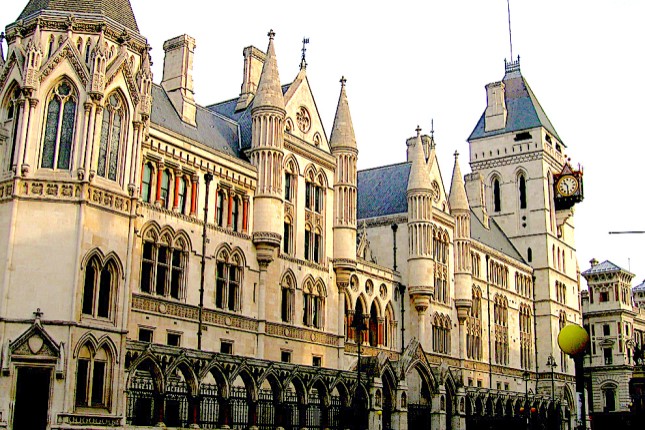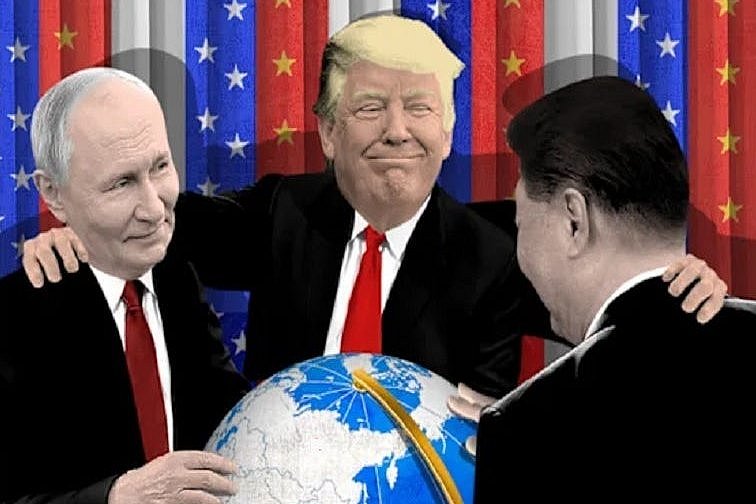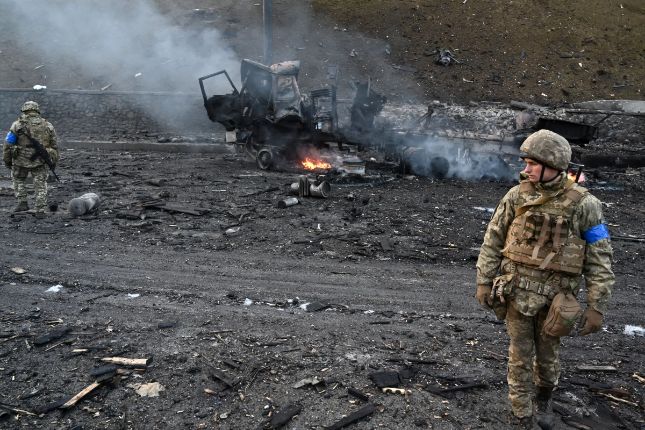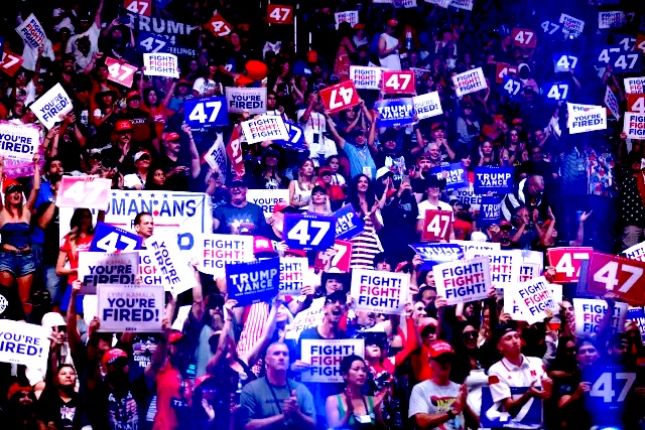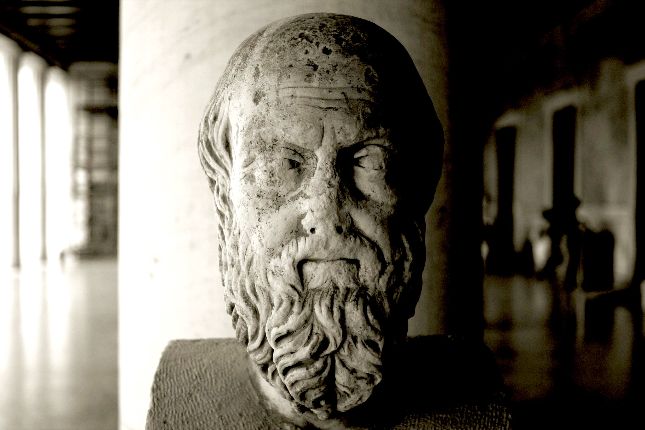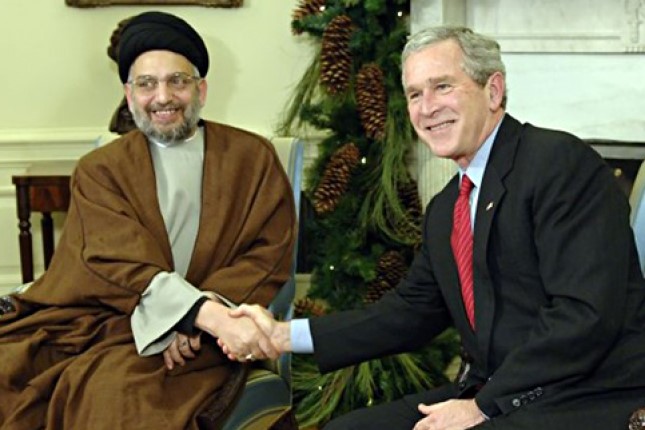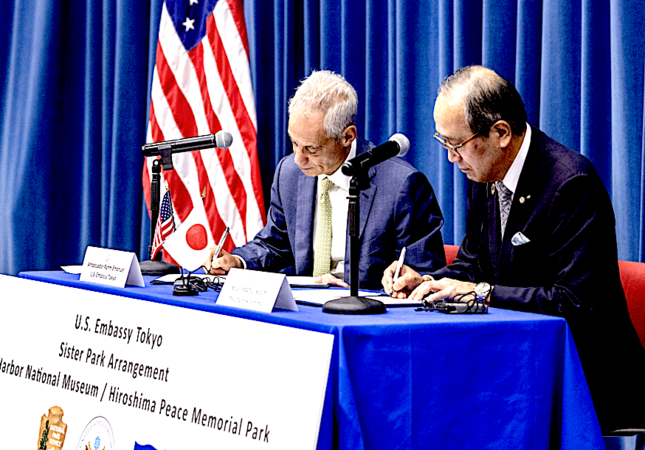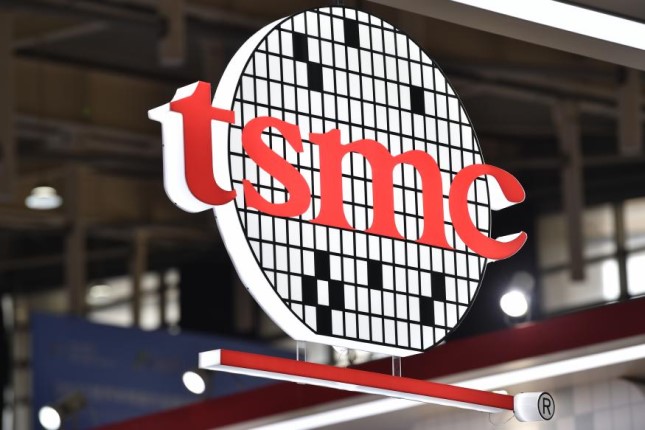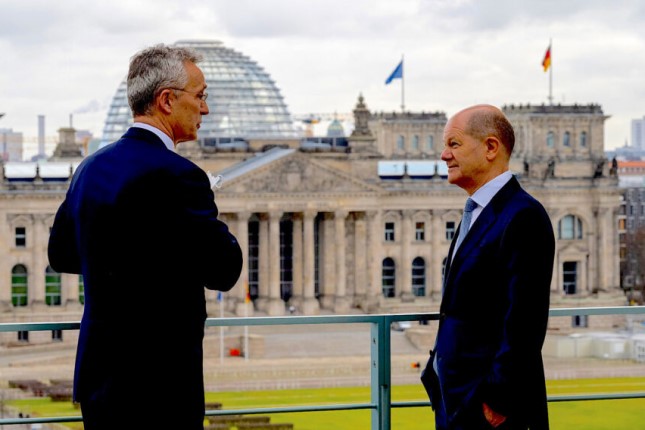The coming days or weeks could be the most pivotal in imprisoned WikiLeaks publisher Julian Assange’s four-year legal drama. There are five possible scenarios:
- Assange may have his appeal against extradition heard by the High Court;
- He may have his appeal rejected and be put on a plane to the United States;
- That plane may be stopped by an injunction from the European Court of Human Rights;
- A last-minute plea deal may be worked out guaranteeing Assange’s eventual freedom or, least likely
- the U.S. may abruptly drop its charges against him.
Following the decision by High Court Judge Sir Jonathan Swift this month to reject Assange’s application to appeal his ordered extradition to the United States to stand trial on espionage charges, Assange’s legal team filed a new application to the High Court last week. The decision on this application could come any day.
If it is refused, Assange will have run out of legal options in Britain, and could only be saved by the intervention of the European court. There is also still a chance of a plea deal in which President Joe Biden would need to exact punishment of Assange to cover his political posterior.
Given new revelations in the UC Global case in Spain about C.I.A. spying on Assange there’s even an outside chance the Biden administration may drop the case to avoid exposure in the media circus that would ensue in Alexandria, VA if Assange is extradited to stand trial there.
Rollercoaster
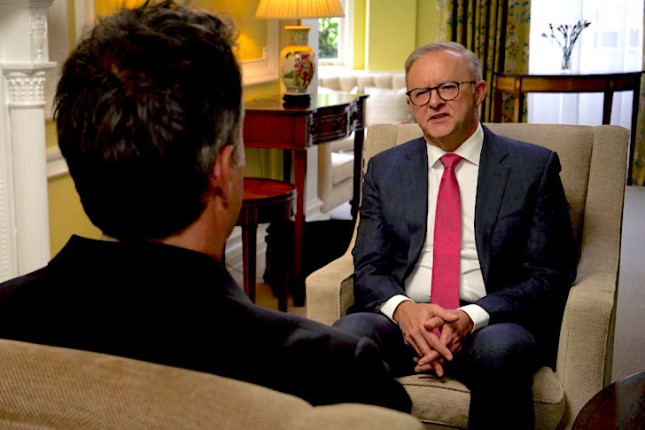
Albanese tells Australian Broadcasting Corporation while in London for the coronation on May 4 that he has spoken to U.S. about Asaange. Photo: ABC News: Adrian Wilson.
Assange and his supporters have been on a rollercoaster since the beginning of May.
Expectations grew in Australia last month that a deal may be in the works to liberate him. The hopes began with the clearest statements yet on the case from Australian Prime Minister Anthony Albanese. On May 4, he said for the first time that he had spoken directly to U.S. authorities about Assange; that he wanted the prosecution to end and that he was concerned for his health.
Optimism grew further when five days later, Caroline Kennedy, the U.S. ambassador to Australia and daughter of slain President John F. Kennedy, agreed to meet a group of six, pro-Assange, Australian MPs, from three different parties, plus an independent.
It is highly unlikely that Kennedy would have invited them to the U.S. embassy for lunch to discuss Assange’s case without approval from at least the State Department, if not the White House.

U.S. envoy Caroline Kennedy (third from left) meets a delegation of MPs championing the Assange cause, including Bridget Archer, Josh Wilson, Andrew Wilkie, Julian Hill and David Shoebridge. Photo: U.S. Embassy.
A few days after that, Albanese said Assange would have to play his part in any deal to be freed. That was widely interpreted to mean that Assange would have to agree to some sort of plea deal, in which he agreed to plead guilty to a lesser charge, perhaps serve a short sentence in Australia and then walk free.
All this was leading up to President Joe Biden’s scheduled May 24 visit to Australia to meet with Albanese. Speculation ran wild that a deal to release Assange might be announced.
A rally in Sydney’s Hyde Park was planned for the day of Biden’s visit. One of his London lawyers, Jennifer Robinson, and Julian Assange’s wife, Stella Assange, made plans to be in Australia, her first ever trip to her husband’s native country.
Biden canceled his trip to Sydney, he said because of the then debt crisis, and met instead with Albanese in a bilateral meeting in Japan on the sidelines of the G7 Summit. There is no indication Assange was discussed.
Stella Assange went to Australia anyway with Robinson and both addressed the National Press Club in Canberra on May 22. Stella Assange called this period the “end-game, the closet my husband has been to release.”
Robinson said for the first time on behalf of Assange’s legal team that they would consider a plea deal.
Robinson said: “We are considering all options. The difficulty is our primary position is, of course that the case ought to be dropped. We say no crime has been committed and the facts of the case don’t disclose a crime. So what is it that Julian would be pleading to?”
Two days later, Stella Assange and Assange’s brother and father whipped up a huge crowd of Assange supporters at the Hyde Park rally.
The Alford Plea
It is hard to imagine Assange admitting to having done anything wrong, when the case against him, as argued in his extradition hearing, appears to prove no wrongdoing at all.
The case of David Hicks, an Australian imprisoned by the United States in Guantanamo Bay is relevant. Hicks ultimately was released by the U.S., after pressure from the Australian government, when he agreed to a so-called Alford Plea, in which he pled guilty to a single charge, but was allowed to assert his innocence at the same time on the grounds that he understood he would not receive a fair trial.
Can an Alford Plea be a face-saving solution for both Biden and Assange? Can Assange’s team frame it as Assange denying participation in any crime while at the same time having to plead guilty to at least a lesser charge?
FBI Continues Probe
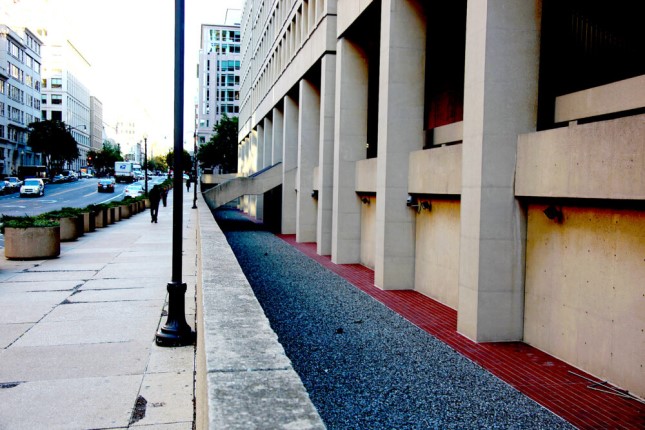
J. Edgar Hoover Building, headquarters of the FBI in Washington, D.C. Photo: Tim Evanson / CC BY-SA 2.0 / Wikimedia Commons.
Some of this optimism was punctured on May 31 when The Sydney Morning Herald reported that the F.B.I. was still carrying out its investigation of Assange, three years after issuing its last superseding indictment.
The Herald reported that the F.B.I. in May sought an interview in London with Andrew O’Hagan, who worked as a ghostwriter on Assange’s autobiography in 2011. The London Metropolitan Police’s counterterrorism command sent the letter to O’Hagan, which said: “The FBI would like to discuss your experiences with Assange/WikiLeaks …”
O’Hagan told the Herald: “I would not give a witness statement against a fellow journalist being pursued for telling the truth. I would happily go to jail before agreeing in any way to support the American security establishment in this cynical effort.”
What could this mean in the context of speculation about negotiations over a plea deal? Did the F.B.I. want to bolster its case to make it easier for Assange to accept a plea on the lesser charge of conspiracy to commit computer intrusion? Or was it just trying to strengthen a very weak case against him?
Assange’s Australian lawyer, Stephen Kenny, told the Herald: “I would think it is of some concern because we have been working to try to secure an arrangement that would see Julian come home. It would be very unusual if the FBI was trying to gather evidence that could help clear his name.”
Judge Rejects Application to Appeal
The rollercoaster plunged further with the news that a single judge on the High Court of England and Wales rejected Assange’s 11-month old request to cross appeal the lower court ruling in his case as well as the home secretary’s decision to extradite him.
Judge Swift, who has manifest conflicts of interest, rejected the 150-page application for appeal of the home secretary’s decision to extradite Assange to the U.S. as well as a cross appeal of the lower court judge who initially released Assange on health grounds and conditions of U.S. prisons but who agreed with the U.S. on everything else.
Swift took just three pages to dismiss the 150-page application to appeal, complaining about the length of the submission in the process. He called Assange’s appeal “new evidence,” which he rejected, while the same court accepted the new evidence of U.S. assurances not to mistreat Assange to overturn the lower court’ decision to release him on health grounds.
Assange’s legal team has one last chance with the court. On Tuesday last week they submitted a 20-page document to the High Court arguing why it should listen to the appeal against extradition. His team will get no more than a humiliating 15 minutes of a 30-minute hearing to argue before two judges on the High Court, according to former British diplomat Craig Murray.
If this application is refused there are no more legal steps for Assange in Britain and he could be theoretically put on a plane to the U.S. that day.
At that point, only an injunction from the European Court of Human Rights can stop the plane from taking off until that court examines the case. Assange’s lawyers filed a submission to the ECHR in December.
But there is also the possibility of a last-minute plea agreement or the U.S. dropping the case.
What Biden Needs
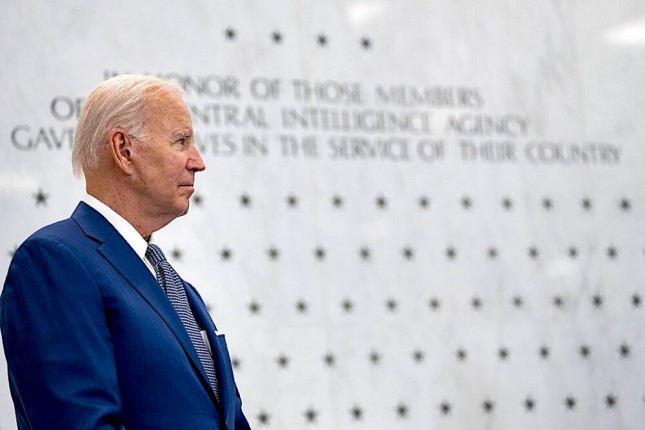
President Joe Biden delivers remarks celebrating the 75th Anniversary of the CIA Friday, July 8, 2022, at the George Bush Center for Intelligence in McLean, Virginia. Photo: Official White House Photo by Adam Schultz.
This flurry of bad news for Assange, after weeks of encouraging developments, has buried talk of a plea agreement. But a last minute deal cannot be ruled out.
Biden would need his pound of flesh from Assange if he would allow his administration to offer a plea. Assange would most likely have to plead guilty to something and serve more time, likely in Australia, before Biden would entertain ending the case.
Though he was never charged for the Democratic National Committee or the C.I.A. leaks, Assange is the continuing target of their ire, and would be unlikely to look kindly on Biden letting him go, especially a year before a U.S. presidential election. Biden knows he’s wrong on Assange, if he can remember it. He clearly stated his position on Assange on Meet the Press in December 2010.
Vice President Biden told the program that Assange could only be indicted if it could be proved he conspired to steal the published documents. That could not be proved and the Obama-Biden administration did not indict Assange. The Trump administration did. But only on the original 2010 espionage charges.
The U.S. indictment does not accuse Assange of stealing U.S. government documents, but only receiving them. If Biden stuck to his original principles he would have these charges dropped and let Assange go. But it’s political dynamite for him.
The C.I.A. and DNC would likely be furious with Biden so he will need something in return to show them for letting Assange go. Whether that satisfies them is another matter.
Dropping the Case
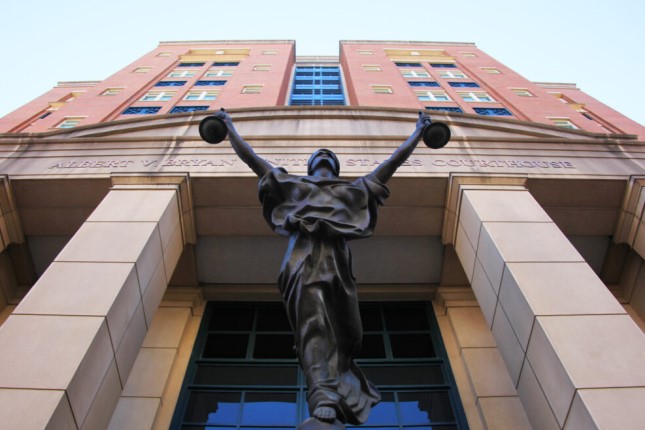
Albert V Bryan Federal District Courthouse, Alexandria, Virginia, 2012. Photo: Tim Evanson / Flickr.
The last, long-shot possibility, is that the U.S. drops the case altogether. This is what Assange’s supporters, parliamentarians around the world, human rights and press freedom groups, journalists’ unions and even WikiLeaks‘ five corporate media partners have been calling for.
But until now it’s been like talking to a marble wall in Washington. Yet, developments in the UC Global case in Spain and the upcoming U.S. presidential election might provide conditions for the U.S. to want to get out of its pursuit of Assange.
A recent development in the Madrid criminal trial against UC Global chief David Morales for violating Assange’s privacy by spying on him in Ecuador’s London embassy with 24/7 live surveillance for the Central Intelligence Agency as well on his privileged conversations with his lawyers has solidly confirmed the C.I.A’s role.
Would Langley want that exposed at Assange’s trial federal court in Alexandria, VA, where U.S. media interest would be intense?
Also, would Biden welcome during a presidential campaign the protests in the plaza before the Alexandria courthouse, highlighting his administrations efforts to convict a journalist for publishing accurate information exposing U.S. state crimes, handing his political opponents a cudgel to expose his hypocrisy about defending press freedoms?
It might indeed be in Biden’s and the C.I.A.’s interests to wash their hands of this filthy endeavor once and for all.
In one way or the other, the coming weeks appear to be leading to a climax in the extradition phase of arguably the most important press freedom case in U.S. history.
Main photo: Royal Courts of Justice © Joe Lauria.
Source: Consortium News.
